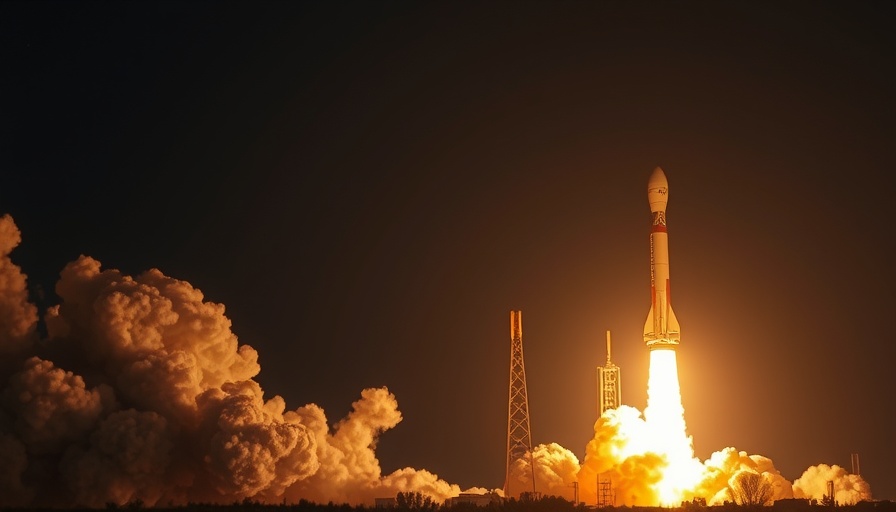
Elon Musk’s Mars Dream Faces Significant Setback
In a major development that has left many questioning the future of space exploration, Elon Musk's ambitious Mars project has encountered a significant hurdle. A recent testing phase of the SpaceX rocket ended in disaster as the vessel exploded, casting a shadow over planned missions to the Red Planet. This incident not only raises challenges for SpaceX but also highlights the complexities of aerospace engineering and the immense risks involved in such groundbreaking ventures.
What Happened During the Testing?
During a routine test aimed at ensuring the rocket's readiness for future missions, the rocket exploded, creating a fiery spectacle visible from miles away. SpaceX engineers were reportedly testing the engines when unexpected readings indicated a potential failure. Despite swift attempts to mitigate the situation, the rocket was lost in seconds.
The Stakes of Space Exploration
The explosion is a stark reminder of the tumultuous journey toward making space travel accessible to everyone. Musk's dream of establishing a human settlement on Mars is becoming increasingly complicated, as multiple factors—including budget constraints, technological setbacks, and safety concerns—come to the forefront. The safety of astronauts remains the leading priority for agencies across the globe, and the recent explosion reiterates this critical concern.
The Road Ahead: Implications for SpaceX
Following this setback, SpaceX must address numerous challenges in its quest to reach Mars. Experts suggest that addressing engineering flaws, increasing testing reliability, and improving safety protocols are paramount. Furthermore, the financial implications could impact the company's ambitious timeline, pushing back planned missions significantly. The question now is whether SpaceX can rebound from this incident and restore public confidence in its capabilities.
Lessons from Historical Space Failures
This incident echoes several past space tragedies, serving as a sobering reminder of the consequences of trial and error in rocket science. From the Challenger disaster in 1986 to the Columbia tragedy in 2003, NASA and other space agencies have continually learned from their failures. These lessons have paved the way for improved safety measures and more resilient spacecraft designs.
Public Sentiment: Balancing Optimism and Fear
The public's reaction to this explosion is mixed, with many expressing empathy for the engineers and workers at SpaceX, while others voice concern over the safety of human spaceflight. Supporters argue that setbacks are a natural part of innovation and that overcoming challenges leads to eventual success. Conversely, critics question the prudence of investing in Martian colonization when basic challenges on Earth remain unresolved.
Future Predictions: What’s Next for SpaceX and Mars?
Looking ahead, the timeline for SpaceX's Mars missions is likely to undergo significant shifts. Experts are predicting a longer development process, with substantial resources devoted to ensuring the safety and reliability of future rockets. The ultimate goal remains—a sustainable human presence on Mars—but now, the trajectory to achieving it appears more complex than ever.
Final Thoughts: Why This Matters
As we witness the ongoing saga of human space exploration, it is crucial to understand both the risks involved and the extraordinary potential that lies in venturing beyond our planet. This latest setback for SpaceX serves as a rallying point for innovation and resilience in the face of adversity. For those invested in the future of human space travel, keeping an eye on developments at SpaceX will remain vital as the company pushes forward toward its audacious goals.
In light of this recent explosion, it is essential for readers to engage with credible news sources and stay informed on the developing story. Consider what the future of space exploration holds and how we, as a society, can support safe and responsible progress in this extraordinary field of endeavor. Your voice matters—stay informed, and don’t hesitate to share your thoughts about the future of space exploration!
 Add Element
Add Element  Add Row
Add Row 



Write A Comment